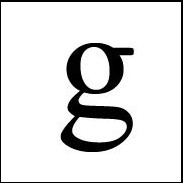Au fait, pronounced (oh fey), is borrowed from French. It literally means to the point or to the fact. In English we used it to say that someone has the whole picture, complete knowledge of something, or is socially correct. Grammatically it works as an adjective.
The phrase is more commonly found outside the United States, and usually used with the preposition with. To be au fait with could almost be a synonym for to be familiar with.
Examples
The quality of books, television and cinema for that young audience is extraordinary, and it means that they are au fait with rich storytelling and the wildest use of the imagination. [The Irish Times]
Millennials are au fait with the modern tools of money management, but not interested enough in using those tools. [New Zealand Herald]
This raw, lurid, exciting image of nightlife is plainly the work of a painter who was au fait with the latest European art. [The Guardian]
Perhaps, to be au fait with the In crowd, they talked of the recent legalization of marijuana in several states, sharing a joint, with dialogue that reached across the millennia: Wow, my man, Pharaoh’s Army got drownded! Let’s go to Zion, and set the stage for reggae music. [Huffington Post]
So if someone who isn’t too au fait with science hears that his computer is frozen, it’s surely natural that he will try to gently, scientifically unfreeze it. [CNET]

Comments are closed.